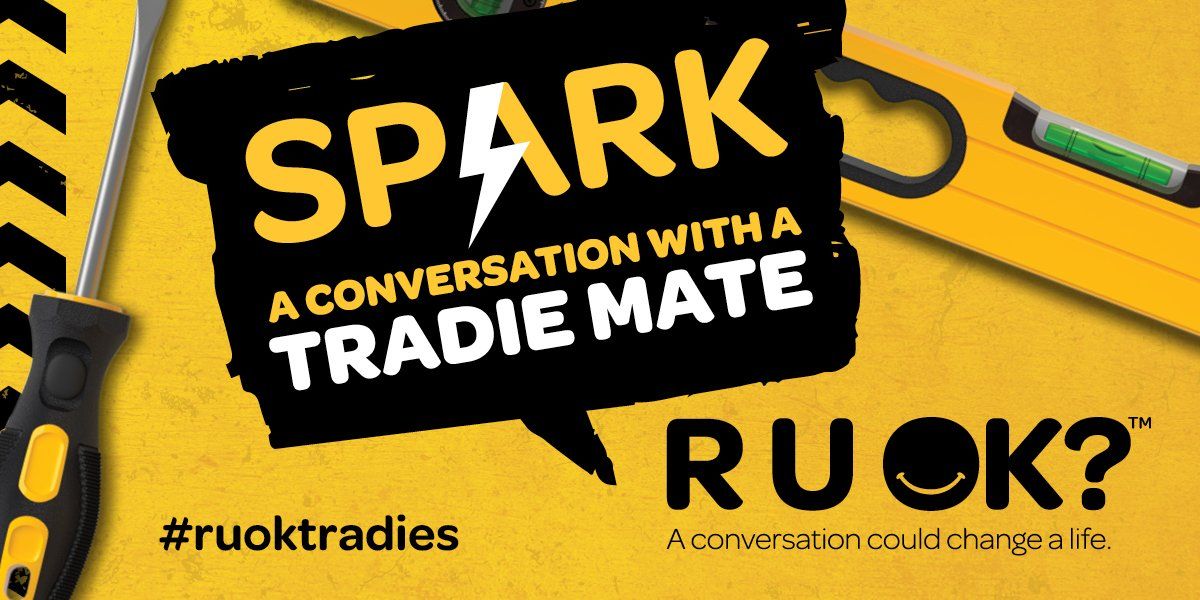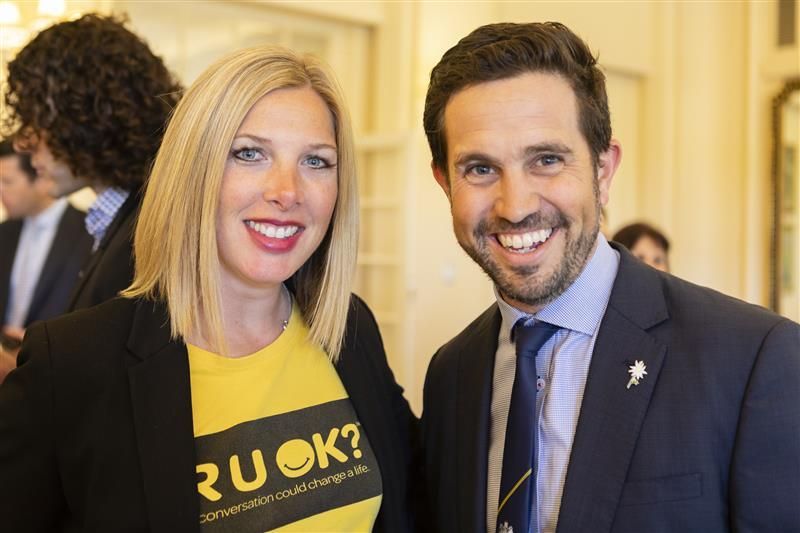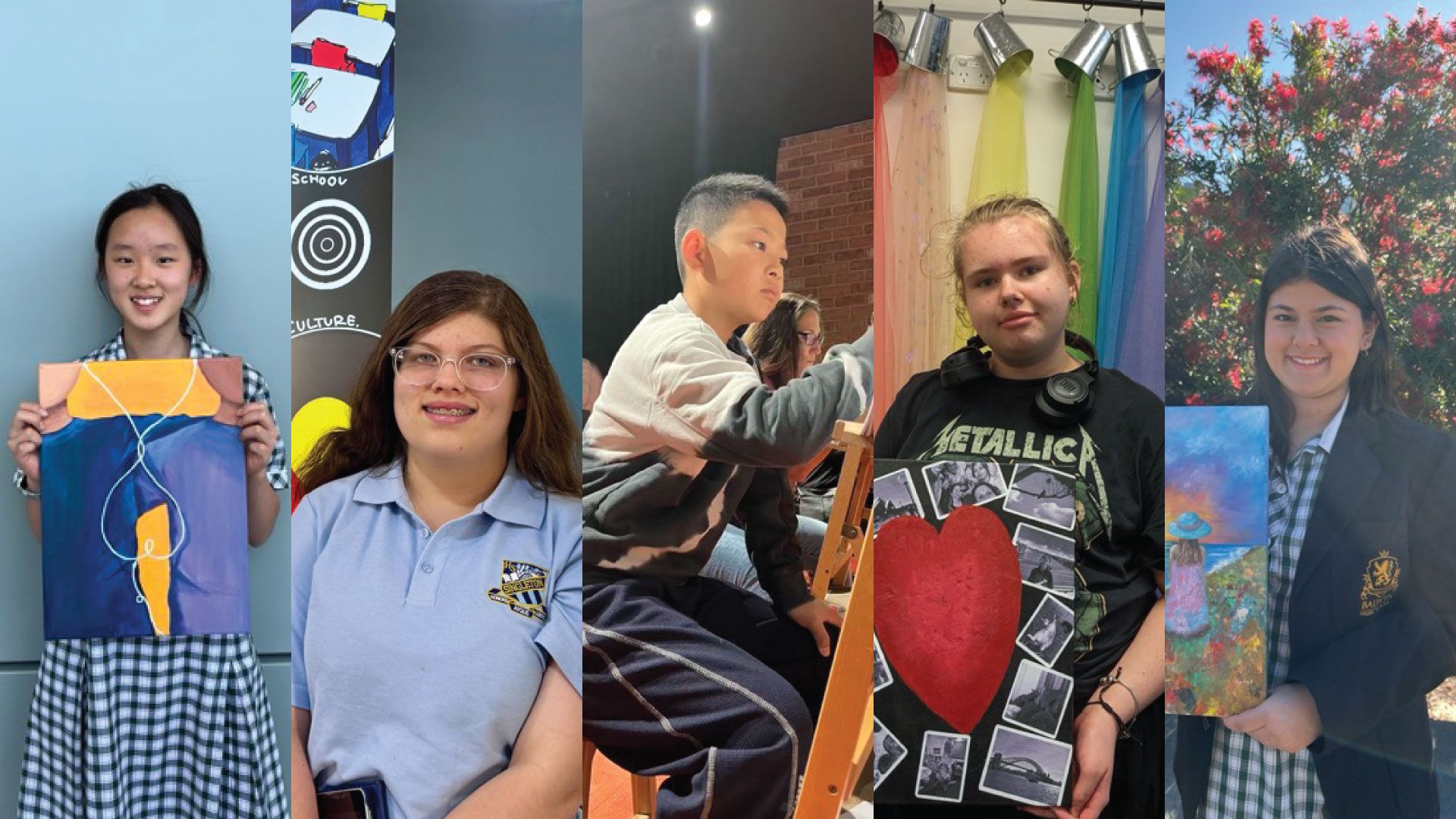R U OK? Tradies

R U OK? is calling on Australian tradespeople to add conversation skills to their toolkits and has released ‘Tradies Tools to Talk’ to help them know when and how to ask their workmates ‘are you OK?’.
The resources feature ‘tradies’ sharing their stories and practical tips supported by information about how to spot the signs someone might be struggling, and how to navigate the conversation if someone answers, “no, I’m not OK.”
Katherine Newton, CEO, R U OK? says ‘Tradies’ face challenges across their working lives and the impact of COVID-19 has increased uncertainty for a workforce already dealing with job insecurity pressures and the inability to adopt a Work From Home model.
Trades workers and technicians make up more than 13 percent of the Australian workforce with men filling 84 per cent(1.5M) of those 1.8million jobs (Australian Bureau of Statistics, Labour Force Survey June 2021). Within this sector the Building and Construction industry has experienced significantly higher rates of suicide when compared with the general population (Milner A, Law P, Mates in Construction, Mental Health in the Construction Industry June 2017).
“The pressures of job insecurity, financial position and intense physical demands are part of their everyday. Coupled with life challenges such as relationship difficulties and grief, there can be a cumulative effect which impacts mental health and senses of social connection,” said Ms Newton.
“This is sector where stigma is high and internal pressure builds when workers feel they can’t talk to others about what’s happening for them. To help reduce that stigma we’re encouraging workers to use of our ‘Tradies Tools to Talk’ to open conversations and check in with those working alongside them.
“By making time to meaningfully reach out and offer support, you can make a difference to someone struggling with life and help them find professional support where it’s needed.”
The free ‘Tradies Tools to Talk’ resources provide guidance on how family, friends and fellow workers can spot the signs that a ‘tradie’ in their world may be struggling. The resources feature stories of tradies told by tradies and aim to empower individuals with the confidence to check in with a workmate who might be doing it tough.
Plumber Justin Geange has been an R U OK? Community Ambassador since 2015 and works as a Field Officer for suicide prevention charity Mates in Construction. He says that while construction workers were thought of as tough as nails, a lot were hurting and masking their pain.
“I was on struggle street back in 2012 and had a mate call me out on the stuff that he was noticing and the changes in my life, “said Mr Geange. “That conversation led me to get the help that I needed and it’s the reason I’m here today."
Mr Geange says one of the biggest challenges for time poor tradies is finding time to really talk.
“Maybe go for a walk down to the coffee shop and grab a pie and have a yarn or have a yarn in the car on the way to work or on the way home from work,” he said. “These are great opportunities to have meaningful conversations, fair dinkum, real R U OK? conversations.
“As an industry cultural change is happening, and I want play my part in spreading the message that it’s OK to speak up when your struggling.
As someone with a lived experience of mental health and circumstantial challenges, I am passionate about how transparent conversations with a mate or someone you trust can actually change your life, I know, I’ve experienced that firsthand.
“As a tradie, I know how hard it is to put your hand up when you’re struggling, yet we are more likely to accept offered help from a mate or someone you trust. R U OK? has given us tradies some tools we can use to help us with these important conversations.”
The R U OK? Tradies conversation guide was made possible with the support of R U OK? partner Hard Yakka.
Download the free resources including the ‘R U OK? ‘Tradies Tools to Talk’ here.
For crisis support at any time of day or night, call Lifeline on 13 11 14 or access a list of support services here.





















